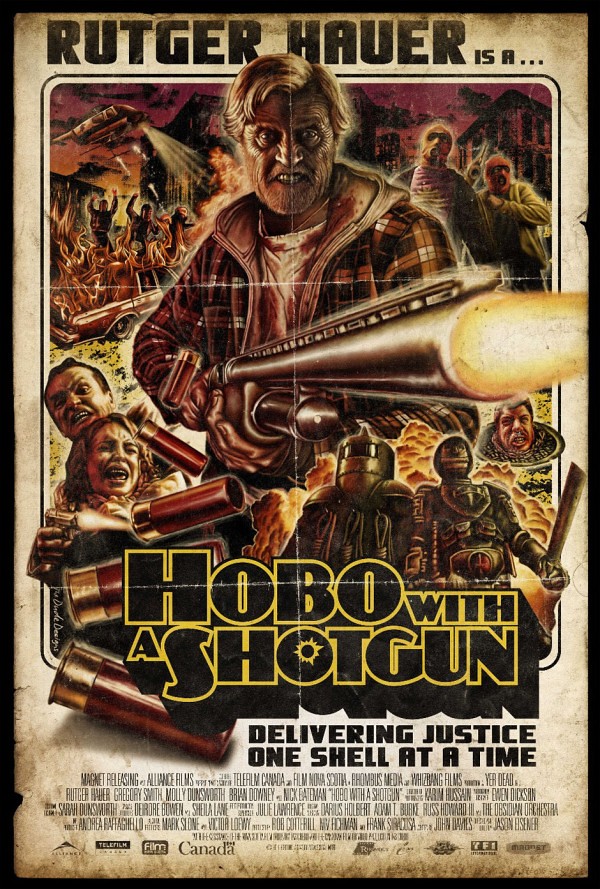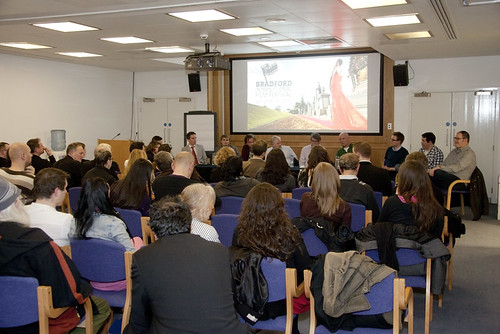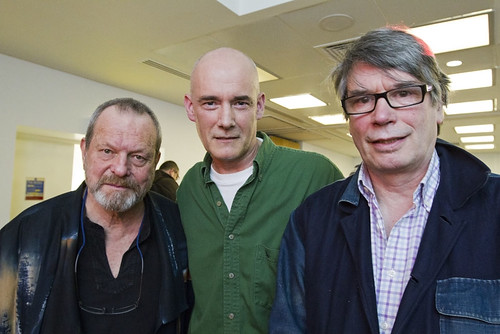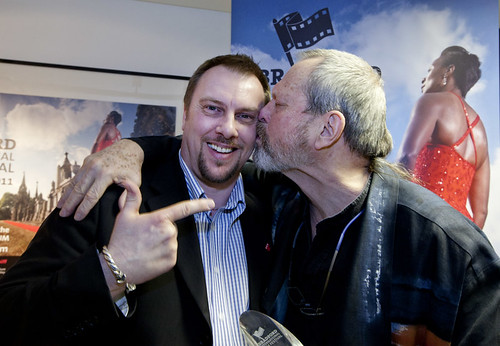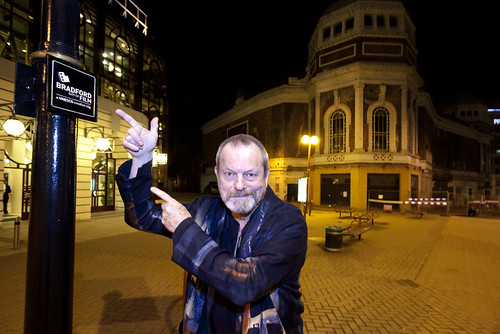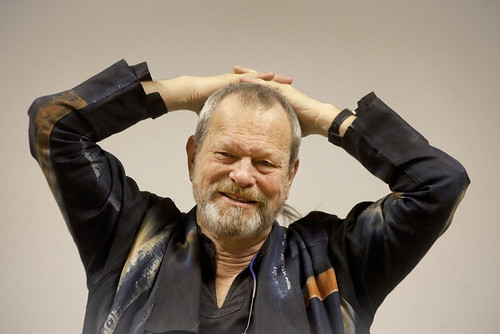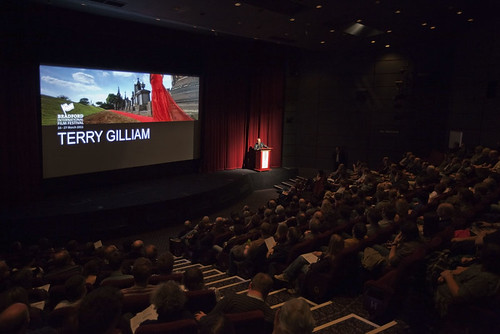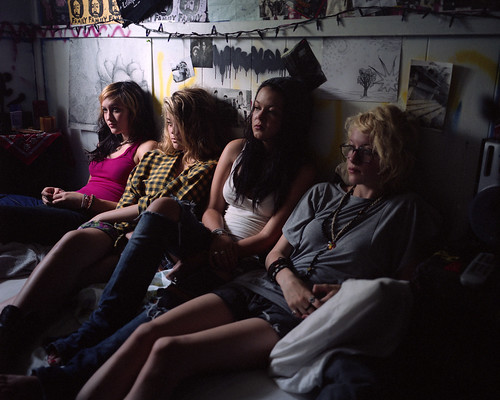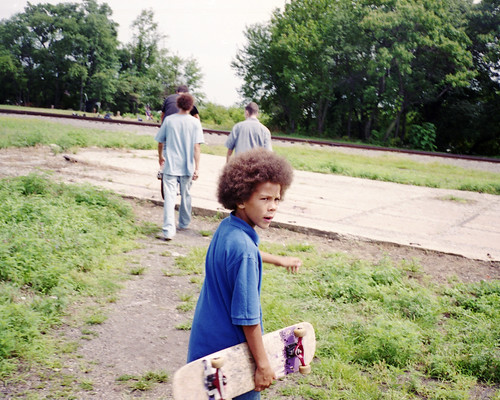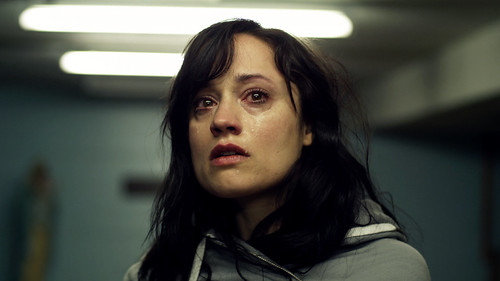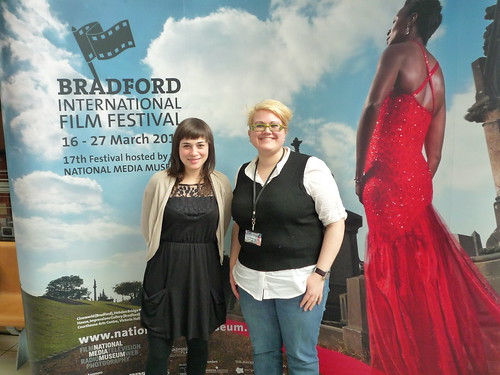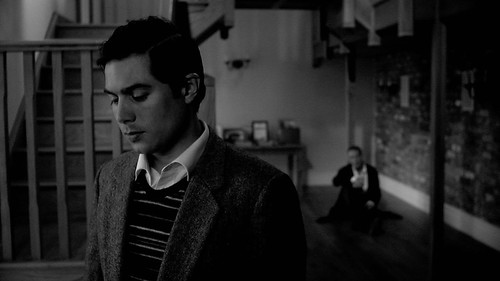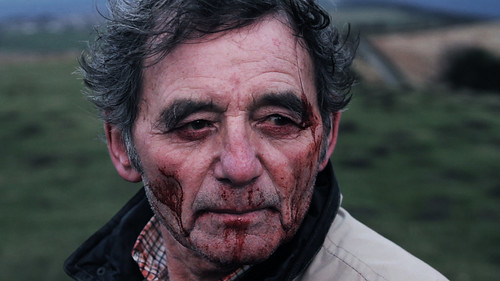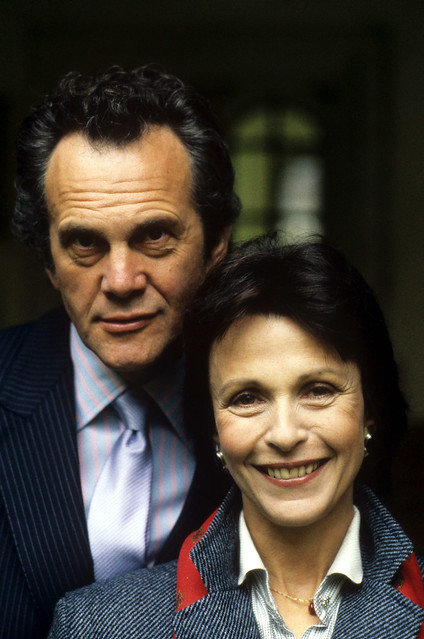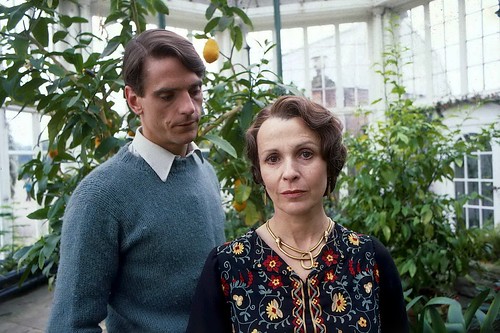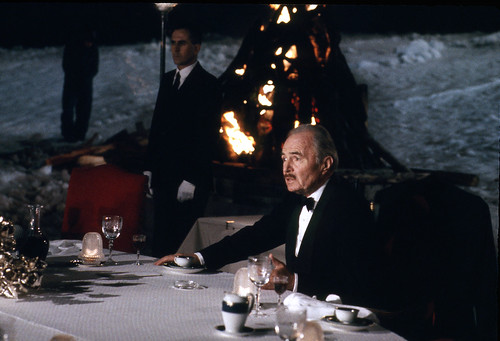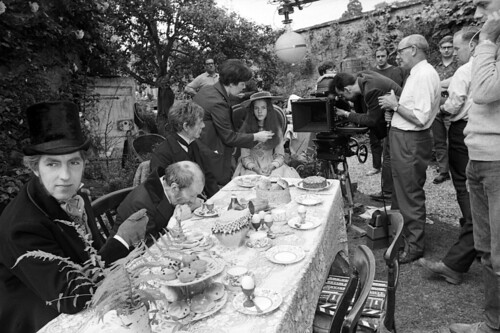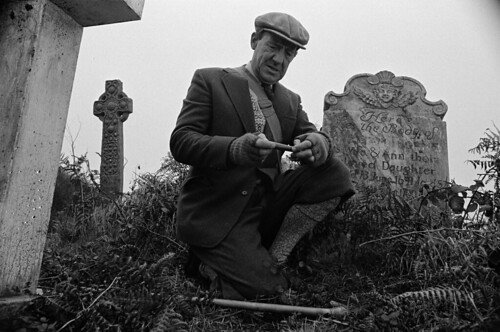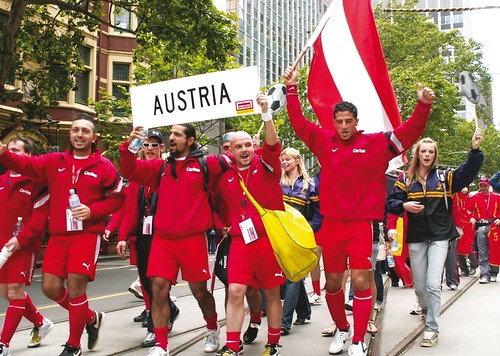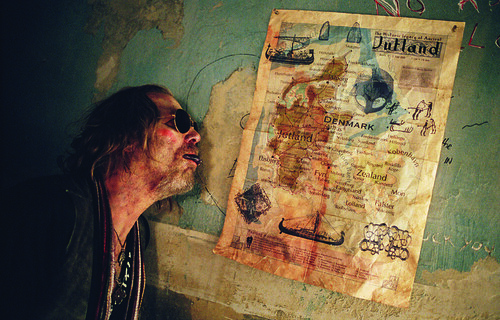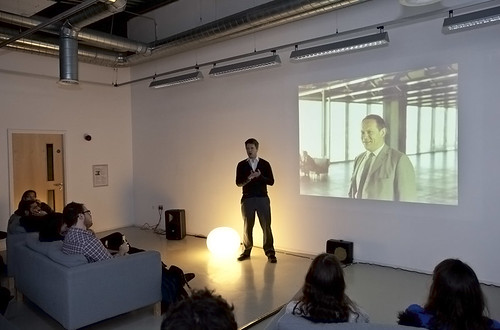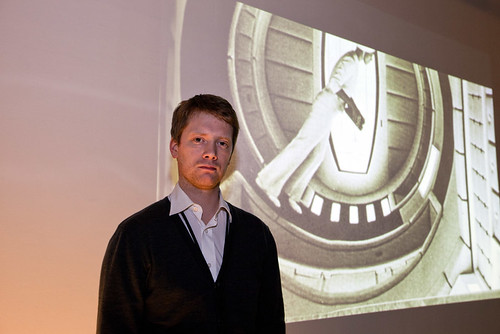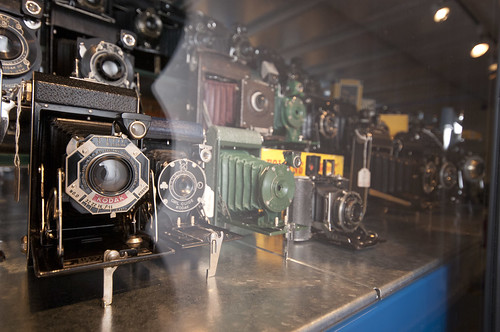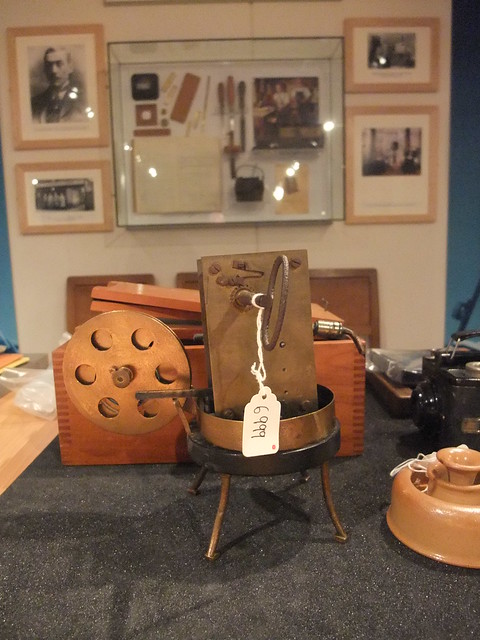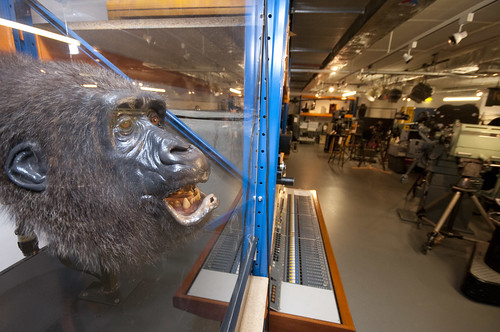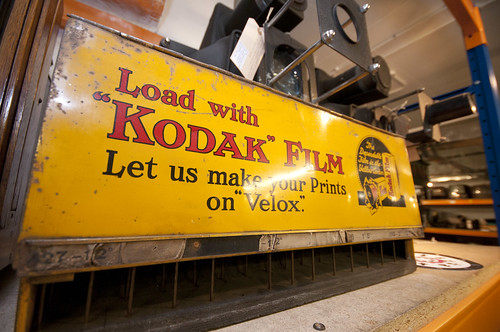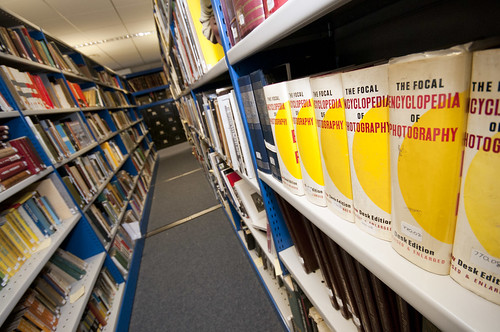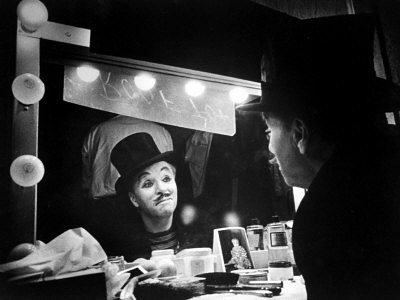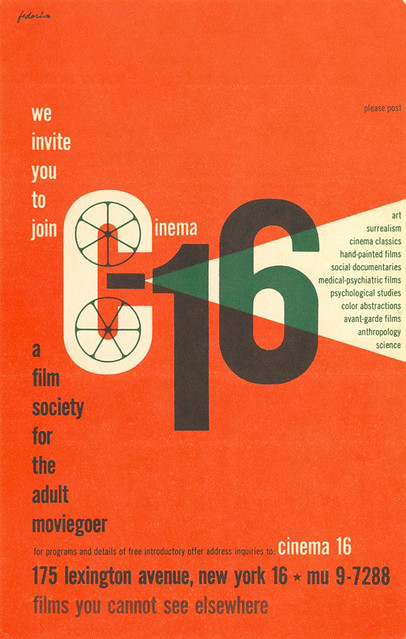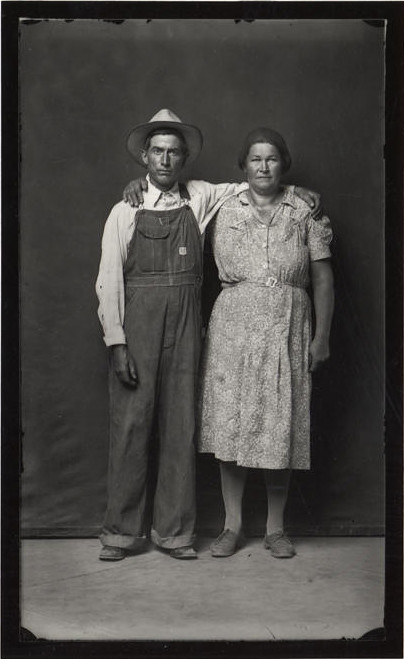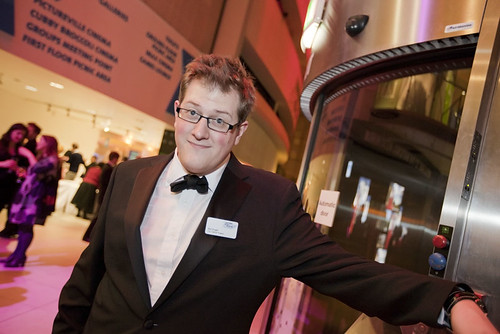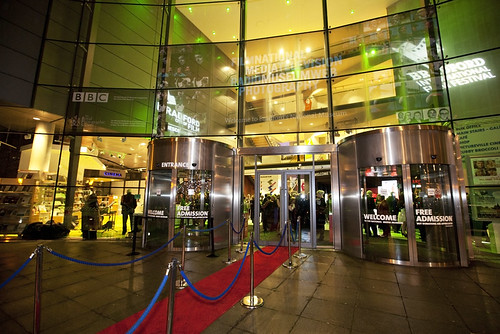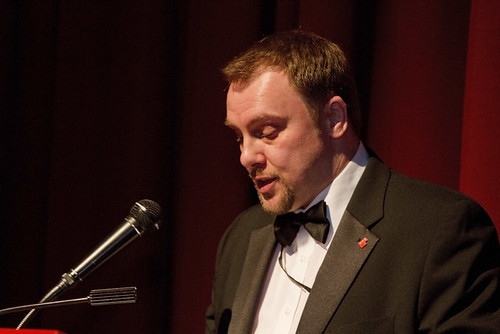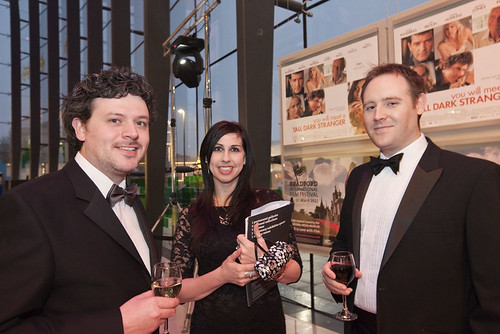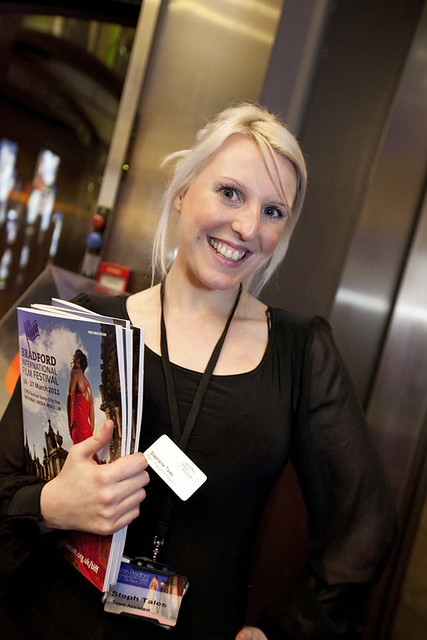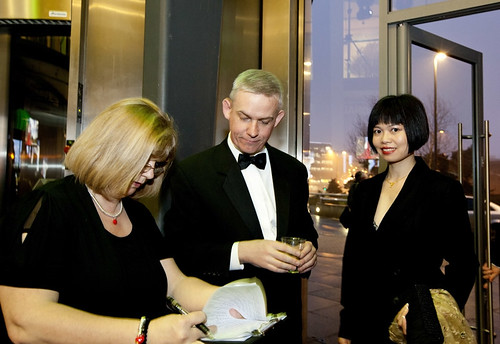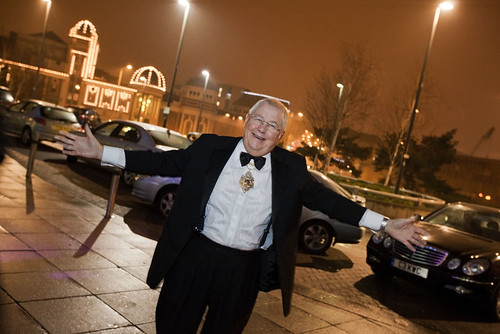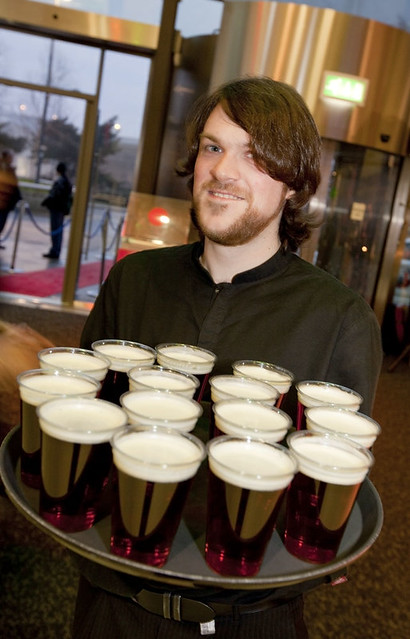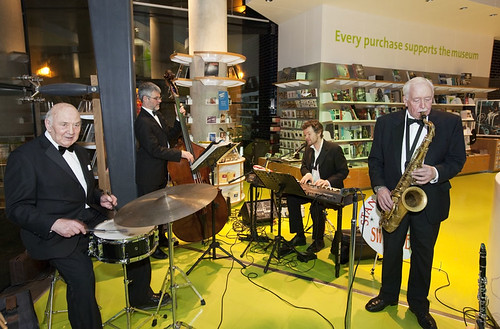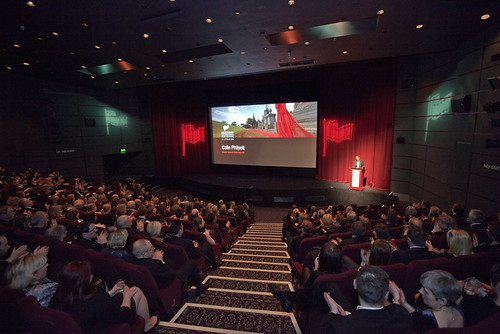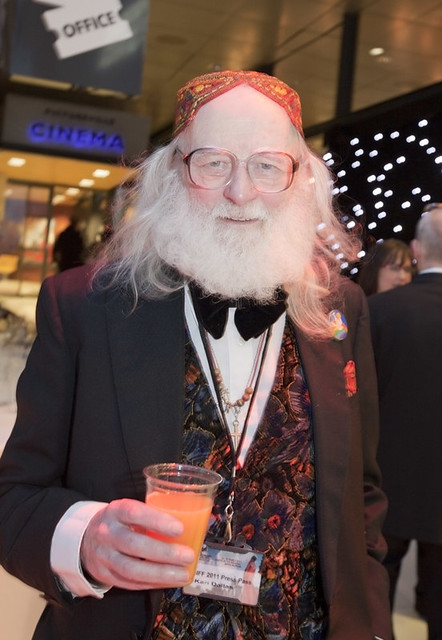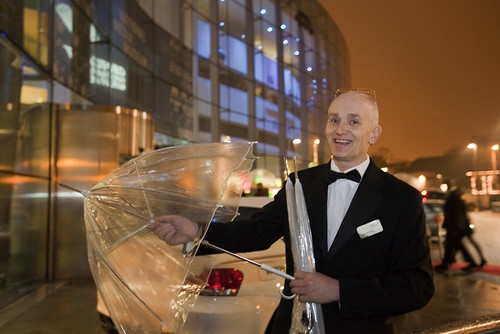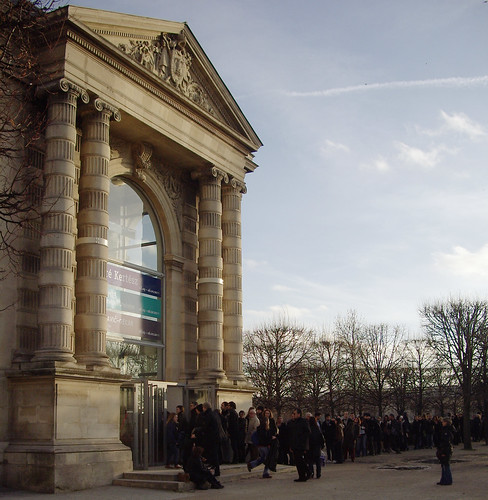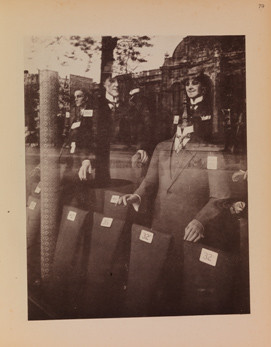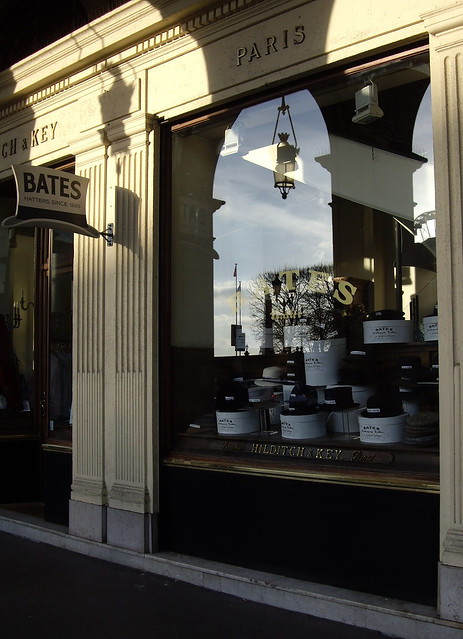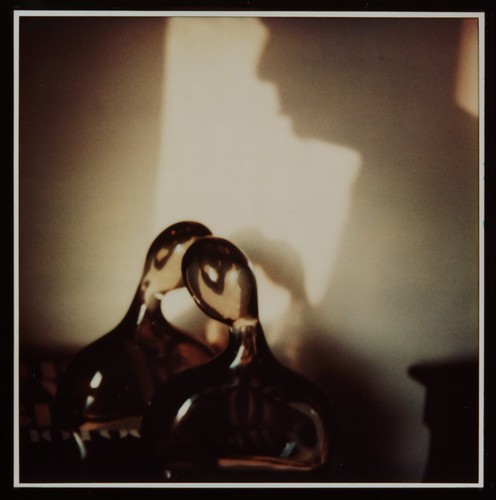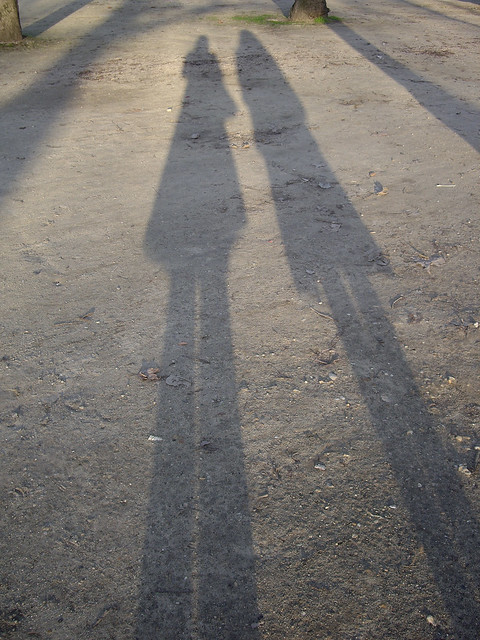Blogger: Greg Spencer
The name Neil Young may not be familiar to you, but as the International Consultant for Bradford International Film Festival, he is one of the people responsible for selecting the films screened at BIFF. I caught up with him to find out what it means to be a film festival programmer.
Greg: How many film festivals do you attend each year and why do you choose those particular festivals?
Neil: Last year I attended fourteen festivals - including Bradford - and this figure is average for my attendances over the last five years or so. I visited Tromsø in Norway, Rotterdam, Berlin, Bradford, Leicester (British Silent Film Festival), Crossing Europe in Linz, IndieLisboa in Lisbon, Edinburgh, Wroclaw in Poland, San Sebastian in Spain, Reykjavik, Vienna, Leeds and Ljubljana. I also had a day trip to London Film Festival to catch a single picture, but such a fleeting visit hardly counts as 'attendance'.
Some of these festivals I work with in a programming capacity, where I'll suggest films for the programmes, then attend to introduce the films or lead a Q&A. Tromsø, Linz, Lisbon, Edinburgh, Vienna and Ljubljana fall into that category (though I'm no longer connected with Edinburgh). Of the others, some are certain long-established and very big events like Rotterdam, Berlin and San Sebastian, which are of particular interest from a programming and journalistic capacity as they have so many world and/or European premieres. Others - such as Wroclaw and Reykjavik, I visited for the first time last year on the basis of recommendations from friends and colleagues, and because the cities themselves looked worth exploring (I'd never been to Poland or Iceland before).
Over the last 10 years I've built up a core list of festivals which I visit every year (or try to) but I'm always on the lookout for new places to go. If I'm lucky I might get invited by a festival, which means they will cover the hotel costs and maybe the transportation. If an invitation doesn't clash with an existing commitment, I'll probably take it up - unless I've heard negative reports about the event or its location. For example, in November I'll be on the jury of a festival in Skopje, Macedonia, and this will be my first time in that country. I'm expanding my film-festival attendance at the moment and might make it to 16 or more festivals during 2011, if I'm lucky.
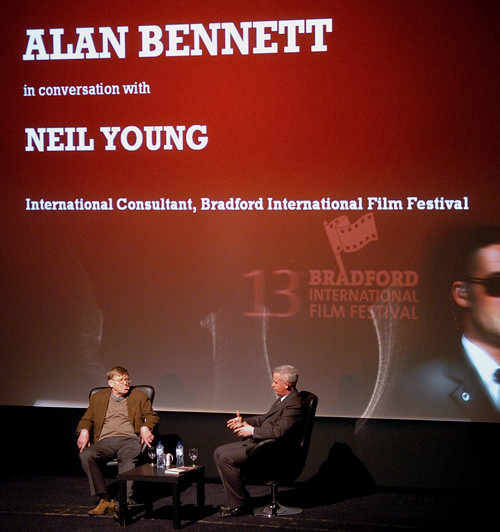
Neil Young in conversation with Alan Bennet at BIFF 2007
Greg: Based on your vast knowledge and experience, would you say that the overall quality of the films screened at festivals has improved or declined in recent years?
Neil: Commenting about overall quality is tricky, because there are so many hundreds of films being made and screened all over the world every year, and festivals are looking for the best and most interesting of these. Looking back at my first experience at the Berlinale in 2002 (Berlin International Film Festival, one of the big three in Europe alongside Cannes and Venice), I watched 33 films, walked out of three, and considered 7 especially noteworthy. This year I watched 32 films, had two walkouts, and found 10 noteworthy films. Not a scientific study, of course, and it could be that I've become more skilled at selecting movies to watch, but I don't think we can say that festival films are "getting worse". Of course, that's what many commentators say, and have been saying for 100 years now. Geographically, festivals have become more adventurous and eclectic, and it's no longer so rare to come across a new film from, say, Kazakhstan or Paraguay.
Greg: How do the British festivals compare to the other European ones that you have attended?
Neil: Of course I'm naturally biased when it comes to Bradford. Historically the major British festivals have never really had the international profile of Europe's big three, or of major North American events such as Toronto or Sundance, and it's a struggle for UK festivals to get prominent world-premieres for anything other than British films.
You'll see all the major new films each year at British festivals, of course, plus dozens of smaller discoveries, but it's surprisingly unusual to find programmers from European festivals who will make time in their schedules to go to the long-running film festivals at Edinburgh or London. This is partly because most other European countries have always had one big festival which dominates, and which gets the most coverage, support and funding - Cannes, Berlin, San Sebastian, Karlovy Vary in the Czech Republic, Locarno in Switzerland, and so on - whereas in Britain there's never really been one clear leader which attains international must-visit status.
Greg: Very interesting. I wonder if London Film Festival will become more prominent and a major player alongside Cannes and Berlin.
Neil: Well, it's not really a Bradford Film Festival person's place to comment on the future fate or fortunes of London Film Festival! We wish them all the best.
Greg: I'd like to ask about the BIFF strand that most concerns you which is Uncharted States of America. How does the selection process work, what criteria do you use, and how do you decide whether a film is suitable for the audience?
Neil: I contribute a hefty chunk of Moviedrome, at least 20 titles in that section each year. Uncharted is a smaller section but I'm pretty much responsible for all of it.
I look for very low-budget features and documentaries, preferably with directors and casts which are new to me, and I have a special interest in films which show unexposed corners of the USA. So many movies from that country are set and shot in Los Angeles, New York or the bigger metropolitan areas, but there has been a long tradition of what used to be called 'regional cinema' back in the 1970s and early 80s, taking us off the beaten track, as it were.
I look for films at the festivals I attend and request DVDs of interesting-sounding contenders which I either hear about or stumble across by trawling websites of the smaller American festivals - there's a network of underground film festivals over there which always have plenty of imaginative movies shot on the thinnest of shoestrings. In most cases, I rely on my own taste and judgement - but I'm aware that the films are playing to paying audiences, so I do take into account what it's reasonable to expect the public to spend their time and money on. With the more experimental or avant-garde material, I tend to concentrate on shorter running-times, perhaps 60-80 minutes, and look for documentaries dealing with relatively accessible subject-matter.
Greg: What do you think is special about film festivals? The shared experience, meeting new people, or discovering exciting new films?
Neil: Film festivals are appealing for several reasons, the most obvious being the films; the chance to see many films in a day, over the course of several days, and of a much greater variety than one would be able to see in any day or week's cinema attendance, even in a big city; ideally featuring a mixture of new (sometimes brand new) and archive materials, intelligently curated and professionally presented.
Then there's the communal aspect. You are always seeing people you know and meeting new people, all of whom share your interest in film and, hopefully, your hunger to discover the next delight. There's also the chance to discuss the films and wider cinema culture between and after the movies, often in a foreign or exotic city which is worthwhile visiting in its own right. And if you get to meet a film-maker or performer, so much the better - often smaller festivals are best for this, while at the really big jamborees such access is very heavily restricted.
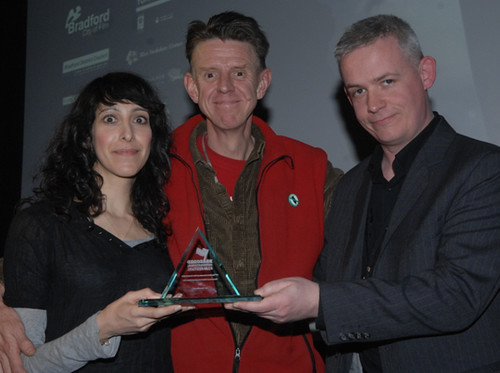
Alex Cox and Neil Young with Shine Short Film Award Winner Harry Wootliff
Greg: What can someone who is coming to BIFF for the first time expect?
Neil: A first-time visitor to BIFF should plunge in and take a chance on movies they might know nothing about at all, from a director - or even a country - whose films are unfamiliar to them. I'd strongly advise dipping into the retrospectives and archival screenings, as it's increasingly rare to see classic films shown from prints on big screens in top-quality projection conditions, which is what you are guaranteed to get at Bradford (though on occasion films have to be shown from digital sources).
Attending a film festival in person should be a social activity - chat about the films you've seen or are planning to see with fellow attendees, and take suggestions or recommendations. Anyone coming to BIFF, whether it's for the first or for the 16th time, will stumble across films that will startle and dazzle them - and maybe one or two that make them wonder why on earth they were selected! One of the great things about festivals is that everyone will have their own opinions about everything they see.
Greg: What has been your favourite festival moment in all the years you've been doing this job?
Neil: Two that stand out are James Benning's great masterpiece Casting a Glance at Bradford in 2008, when we had various problems with the 16mm projector, and I had to keep going out from the booth to beg the audience's patience - everybody stayed, and when the film finally came on it was quite magical, if nerve-shredding, to watch it unfold, and dreading a recurrence of the glitch any second.
Much more recently, there was the prize-giving at Rotterdam in January, which took place in the beautiful 1960s trashy splendour of the Luxor cinema (all mirrors and light bulbs on the walls), and featured a live electric-guitar performance from Sonic Youth's Lee Ranaldo - his guitar suspended from the ceiling - accompanying two 10-minute Japanese experimental films shown from a 16mm projector in the middle of the auditorium.
Straight after, they announced that my favourite film of the festival, Sergio Caballero's unclassifiable art-film spoof Finisterrae had (against all expectations) won one of the festival's three equal-top awards, the Tigers.
Greg: Finally, have you seen any films this year that you expect to be big hits or you would strongly recommend?
Neil: Finisterrae would certainly be one of the films I'd advise you to keep an eye out for later in the year - I do hope it comes to the Museum, perhaps for BIFF 2012...
Another must-see I spotted too late for BIFF 2011 had its world premiere in competition at Berlin a couple of weeks back - it's Alexander Mindadze's thrillingly visceral Chernobyl drama Innocent Saturday (think Cloverfield, with the reactor instead of the monster), which will hopefully get plenty of exposure in conjunction with the 25th anniversary of the explosion in April. For my money, it's a masterpiece.
See you at BIFF.

